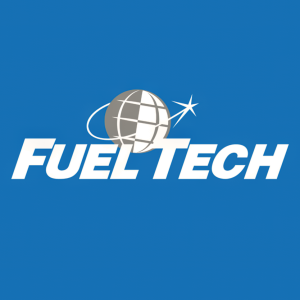Fuel Tech Awarded Air Pollution Control Orders Totaling $2.1 Million
Two orders were received from new customers in
A contract was also received from an existing customer in the
The final contract was received from an existing US customer for upgrades to an existing Selective Non-Catalytic Reduction (SNCR) system for a coal-fired utility unit in the Midwest. Fuel Tech’s SNCR technology is a proven solution for utility and industrial combustion unit owners looking to comply with more stringent NOx control requirements. The SNCR upgrades are being driven by EPA’s Good Neighbor Rule, which requires combustion units with existing NOx reduction equipment to operate at improved efficiency throughout the summer ozone season. Deliveries are expected to be completed by the end of the second quarter of 2024.
Vincent J. Arnone, President and Chief Executive Officer, commented, “We are pleased to announce these contract awards which represent continued growth using our wide range of product solutions on a global basis. Our long-time customer in the
About Fuel Tech
Fuel Tech develops and commercializes state-of-the-art proprietary technologies for air pollution control, process optimization, water treatment, and advanced engineering services. These technologies enable customers to operate in a cost-effective and environmentally sustainable manner. Fuel Tech is a leader in nitrogen oxide (NOx) reduction and particulate control technologies and its solutions have been in installed on over 1,300 utility, industrial and municipal units worldwide. The Company’s FUEL CHEM® technology improves the efficiency, reliability, fuel flexibility, boiler heat rate, and environmental status of combustion units by controlling slagging, fouling, corrosion and opacity. Water treatment technologies include DGI® Dissolved Gas Infusion Systems which utilize a patented channel injector to deliver supersaturated oxygen solutions and other gas-water combinations to target process applications or environmental issues. This infusion process has a variety of applications in the water and wastewater industries, including remediation, aeration, biological treatment and wastewater odor management. Many of Fuel Tech’s products and services rely heavily on the Company’s exceptional Computational Fluid Dynamics modeling capabilities, which are enhanced by internally developed, high-end visualization software. For more information, visit Fuel Tech’s web site at www.ftek.com.
NOTE REGARDING FORWARD-LOOKING STATEMENTS
This press release contains “forward-looking statements” as defined in Section 21E of the Securities Exchange Act of 1934, as amended, which are made pursuant to the safe harbor provisions of the Private Securities Litigation Reform Act of 1995 and reflect Fuel Tech’s current expectations regarding future growth, results of operations, cash flows, performance and business prospects, and opportunities, as well as assumptions made by, and information currently available to, our management. Fuel Tech has tried to identify forward-looking statements by using words such as “anticipate,” “believe,” “plan,” “expect,” “estimate,” “intend,” “will,” and similar expressions, but these words are not the exclusive means of identifying forward-looking statements. These statements are based on information currently available to Fuel Tech and are subject to various risks, uncertainties, and other factors, including, but not limited to, those discussed in Fuel Tech’s Annual Report on Form 10-K in Item 1A under the caption “Risk Factors,” and subsequent filings under the Securities Exchange Act of 1934, as amended, which could cause Fuel Tech’s actual growth, results of operations, financial condition, cash flows, performance and business prospects and opportunities to differ materially from those expressed in, or implied by, these statements. Fuel Tech undertakes no obligation to update such factors or to publicly announce the results of any of the forward-looking statements contained herein to reflect future events, developments, or changed circumstances or for any other reason. Investors are cautioned that all forward-looking statements involve risks and uncertainties, including those detailed in Fuel Tech’s filings with the Securities and Exchange Commission.
View source version on businesswire.com: https://www.businesswire.com/news/home/20240311773918/en/
Vince Arnone
President and Chief Executive Officer
(630) 845-4500
Devin Sullivan
Managing Director
The Equity Group Inc.
dsullivan@equityny.com
Source: Fuel Tech, Inc.







